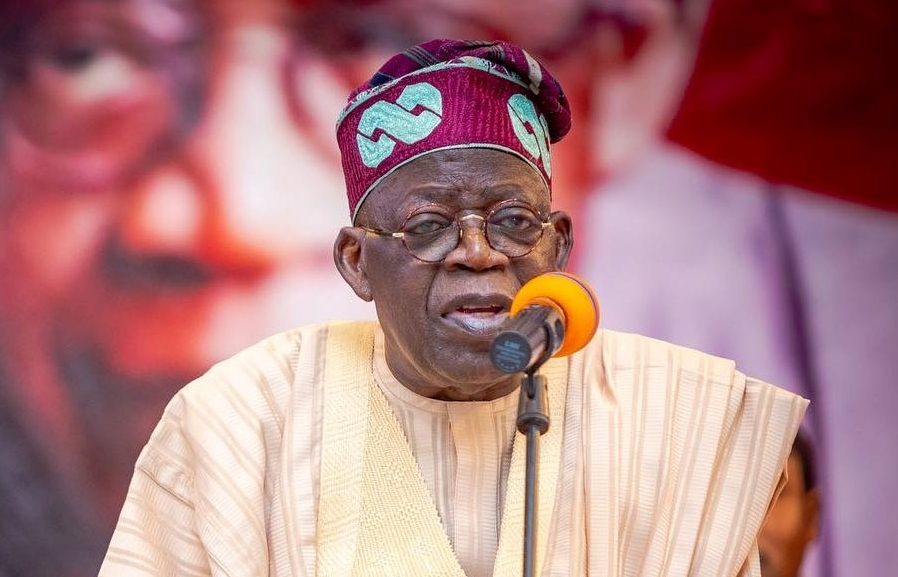Can Tinubu transform Nigeria?
By Azuka Onwuka
As Nigeria awaits the inauguration of another president next week (May 29, 2023), one positive is that Nigeria is poised to experience another smooth civilian transition. That will mark 24 years of unbroken democracy, four times longer than any stretch of democracy experienced by Nigeria since independence in 1960.
However, there is no true feeling that Nigeria will start a journey to transformation. The same question I have been asking for years persists: When will I see the Nigeria of my dream? In my old age, will I continue to hope that Nigeria will get better? God forbid.
I followed Chief Gani Fawehinmi, Nigeria’s foremost human rights and good-governance activist, until his death in 2009. He got to the peak of his career by receiving the title of the Senior Advocate of Nigeria. He was very successful as a lawyer and was financially rewarded exceedingly through his law practice. He had enough money to take care of his family as well as the myriad of people he supported financially. Judged by human standards, Chief Fawehinmi had every cause to die a happy man. But he died an unhappy man. Why? Until his last breath at the age of 71, he continued to lament Nigeria’s sad condition. To underscore his dissatisfaction with the state of Nigeria, in 2008 he rejected a national honour that was meant to be bestowed on him.
Similarly, I followed Chief Anthony Enahoro, former leader of the National Democratic Coalition, who became a newspaper editor at the age of 21. In 1953, at the age of 30, he moved the motion for the Independence of Nigeria, which was defeated at the time. Nigeria eventually got her Independence in 1960. After Independence, Enahoro continued his quest for good governance and a better Nigeria until his old age. Even in his old age, he confronted the military between 1993 and 1998 during the fight for the resuscitation of the June 12, 1993 election result that was annulled. When he died in 2010, aged 87 years, there was nothing to prove that he died happy about Nigeria.
Before Enahoro, there was Dr Nnamdi Azikiwe, first President of Nigeria. He was the head of state between 1960 and 1966 in a parliamentary system of government, which made him not to be the head of government or the chief executive officer of the federation. Before Independence, he led the fight against colonialism. After Independence, he contested elections but never won the presidency. In 1996 he died at the age of 92 years. Zik, as he was popularly called, was a man that worked for the peace and unity of Nigeria and spoke of Nigeria’s greatness in the years to come. But there was no sign that Zik died happy about the position of Nigeria in world affairs.
Today, I see people like Bishop Hassan Kukah, Mr Olisa Agbakoba (SAN), Mr Femi Falana (SAN), etc, shouting themselves hoarse on the need to have a nation Nigerians can be proud of. Some of them have been crusading for good governance for over 30 years. Sadly, as they get close to their 70th birthday, they are still lamenting about the mediocrity and purposelessness that bedevil the Nigeria of today. I wonder if they will ever see the Nigeria of their dream.
Since my childhood, I have had the dream that one day Nigeria would be like other developed countries. Each time there was a change of government, my hope rose. Each government would start with great promise but would soon become like its predecessor or even worse. Then another administration would take over, hope would rise again and nothing significant would change. The cycle has continued like that ever since. Each government records some milestones but these milestones are usually not enough to transform the nation.
The amount of work that needs to be done to bring Nigeria to a level of rejuvenation and real growth is so much that one wonders if it is achievable. Global rankings of universities, hospitals, cities, airports, police, customs, civil service, etc, always place Nigeria among the worst. For example, one looks at Nigerian universities and wonders how Nigerians can be globally competitive with the graduates that come out of such institutions. How can a country have a police force that is poorly paid, poorly motivated, poorly trained, poorly equipped, and with meagre retirement benefit but expect that organisation to be happy and effective?
Yoruba monarchs list expectations from Tinubu
Until 1980, it was seen as a sign of low intelligence for a Nigerian to attend most American universities instead of a Nigerian university. Only those who could not get admission into Nigerian universities sought admission in the US and many other foreign universities. Today, it is a thing of pride to even send one’s children to universities in Sudan. Those who can attend universities in the US or UK are viewed as princes and princesses.
Similarly, until the mid-1980s, it was a sign of poverty to buy a fairly used car. Anybody who bought such a car did not make any noise about it: no show-off, no celebration, no fanfare. Also nobody bought a used refrigerator, TV, air conditioner, etc. In 1981, one American dollar was exchanging for 55 kobo. That means that someone needed almost two million dollars in 1981 to have one million naira.
That same period too, it was unusual for a Nigerian to be flown abroad for medical treatment. Hospitals in Nigeria took care of illnesses effectively. Consequently, in the event of death, home-based Nigerians usually died within the shores of Nigeria. For example, Mallam Aminu Kano died in Nigeria; Chief Obafemi Awolowo died in Nigeria. If they had died at a time like this, they would have died in a hospital in the UK, US, Germany, India etc.
This is not about political parties or personalities. It is about the Nigerian system. If you interviewed our living past heads of state (General Yakubu Gowon, General Olusegun Obasanjo, Major General Muhammadu Buhari, General Ibrahim Babangida, General Abdulsalami Abubakar, and Dr Goodluck Jonathan), you would hear the same thing: each of them did his best while in office. They would give you a long list of achievements they recorded while in office. If you spoke to those who worked under them in government, you would get the same message: each of them did many things to make Nigeria great. If indeed all the past leaders and their aides did great things to turn Nigeria around, why is Nigeria still in the woods? Why has Nigeria’s fortune as a nation been worsening? Why has our infrastructure been degenerating?
Many Nigerians are optimistic that the inauguration of Senator Bola Tinubu as president will bring the needed transformation to Nigeria. In reality, there is nothing concrete backing that hope. Tinubu’s declaration as president is being challenged in court, but even if it is upheld by the Supreme Court, there are no signs that he will take the necessary radical actions that will remove the mountain that is impeding Nigeria’s progress. No doubt, Tinubu will record some achievements. But there are no signs that he has the capacity and believability to transform Nigeria from corruption, mediocrity, and cronyism to excellence.
Nigeria has been deeply scarred by corruption, greed, mediocrity, impunity, cronyism, tribalism, and religiosity that leaders who do the regular will not be able to cause any fundamental change. Nigeria needs a leader that will lead by example and break away from the regular way. The Nigerian system has been so fouled that most Nigerians now believe that what is clearly corruption is divine blessing or “smartness.” Nigeria needs a leader that will undertake a complete reorientation of Nigerians through leadership by example.
Most Nigerians kill Nigeria every day through their actions but think that by repeatedly saying “Nigeria will be great”, it will make Nigeria great indeed. They don’t show how Nigeria will be great. They assume they are patriots and positive thinkers, while others are not. They don’t know the difference between empty positivity and reality. They don’t know that faith without works is dead, neither do they know that hope is not a strategy. No country has ever become great through mere wishes.


